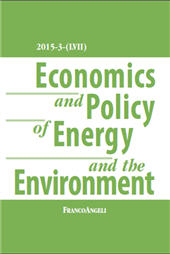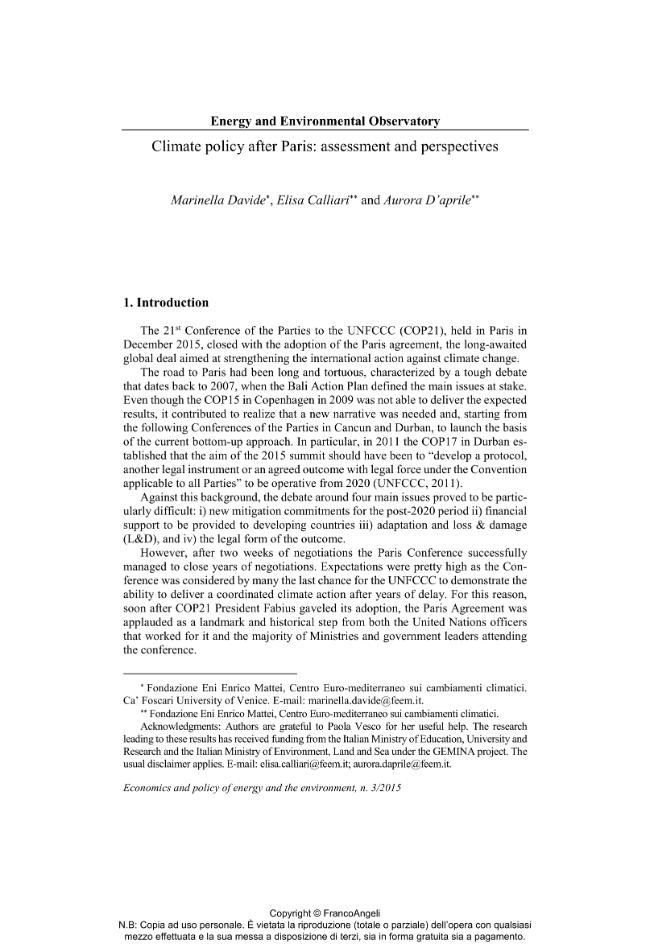Energy and environmental observatory : climate policy after Paris : assessment and perspectives
5-17 p.
The Paris Agreement, adopted at the end of 2015 has been welcomed as a turning point in climate negotiations, after the failed attempt at Copenhagen climate conference in 2009 and four years of groundwork started in 2011 in Durban. Its mandate was indeed to adopt "a protocol, another legal instrument or an agreed outcome with legal force" applicable to all the States Parties to the UNFCCC. The Paris Conference (COP21) accomplished this task by delivering a global agreement that asks the international community to keep the increase in the global average temperature to well below 2 °C above pre-industrial levels, but also include adaptation and low-carbon finance objectives. To achieve these goals the Agreement formalizes a new approach, applicable to all countries, and that will rely on "Nationally Determined Contributions". Yet, beyond the text, challenges remain for turning commitments into action. Key technical and political elements are still to be detailed in policy areas such as mitigation, adaptation, c
arbon pricing, climate finance and transparency. This paper aims at examining the main features of the new global climate agreement, paying particular attention to these key issues and discussing the implications they will have in the near and long term future.blisher's Text].
-
Articoli dello stesso fascicolo (disponibili singolarmente)
-
Informazioni
Codice DOI: 10.3280/EFE2015-003001
ISSN: 2280-7667
PAROLE CHIAVE
- Paris Agreement, NDCs, mitigation, adaptation, carbon pricing, climate finance



